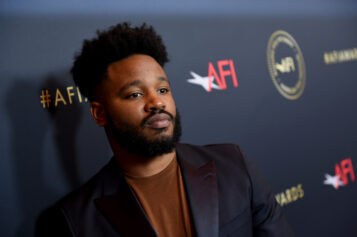Last week,”Black Panther” director Ryan Coogler stopped by “Ebro In the Morning” and discussed how the African continent made him discover the similarities between Black American customs and those on the motherland.
“One thing that I was kinda told about being African-American is that we lost our culture, that we lost our connection to Africa because we can only go back — documentation wise — 400 years and we don’t know what specific tribe we’re from. Because we don’t know these things that we kinda, like, bastardize,” he says. “And I believed that til I went [to countries like Kenya, South Africa Lesotho] and I spent time with people and did rituals with people and was like, ‘Oh yeah, we do this exact same thing at home.'”
Coogler explained he went to a Khoisan ritual and saw a cow and goat slaughtered. He said he observed the family dynamics where the men, women and children were located in different sections of the house. The young men were in the back of the home passing a drink as the women were cooking.
“I’m like, ‘Yo this is my house in Richmond, Calif., every weekend,” he says. “It’s the same arrangements and they were like, ‘Oh yeah, because y’all are African. Y’all just doing what our people been doing for thousands of years. It’s no way that whatever you thought happened to y’all could have broken that.'”
When he went to a township, he discovered the local’s attitudes toward watermelon differed drastically from that of Black Americans.
“The woman was handing out pieces of watermelon … and the shepherds, they’ll wrap ’em up and they was treating them like they was gold or diamonds or something,” Coogler explains. “And she was like, ‘Aw man it’s the most important food out here. It’s the only food you can eat that will fill your stomach up and keep you … from feeling hungry but it’ll give you all the hydration and nutrients ’cause you’re out here in the sun.’ And I was like, ‘Where I’m from they make fun of us for eating that to the point that we don’t even wanna eat it in front of people.’ And she was like, ‘Why would you not wanna eat what’s so important to you and your culture?'”


